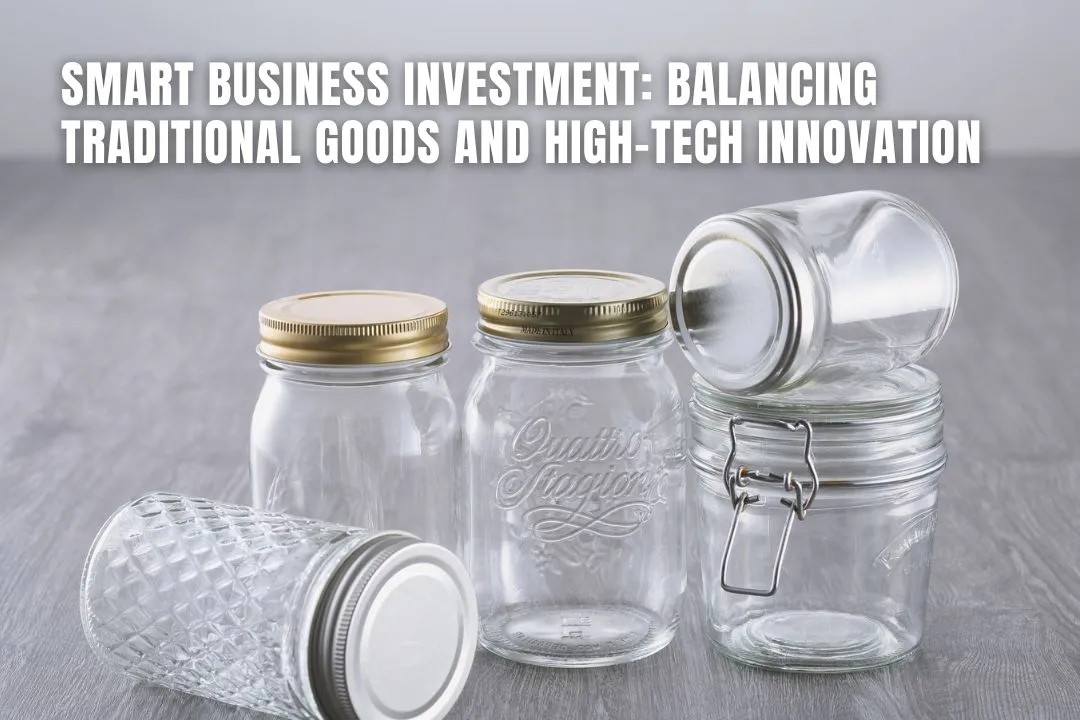
Editorial Disclaimer
This content is published for general information and editorial purposes only. It does not constitute financial, investment, or legal advice, nor should it be relied upon as such. Any mention of companies, platforms, or services does not imply endorsement or recommendation. We are not affiliated with, nor do we accept responsibility for, any third-party entities referenced. Financial markets and company circumstances can change rapidly. Readers should perform their own independent research and seek professional advice before making any financial or investment decisions.
Despite the constant buzz around digital transformation, traditional sectors continue to offer solid returns and reliable demand. One such example is the food packaging industry, where glass jars for food remain a staple. These jars are not only valued for their sustainability but also for their durability, reusability, and aesthetic appeal. As consumer awareness of environmental issues grows, businesses that produce or distribute glass jars are seeing increased demand from retailers and food manufacturers who wish to reduce plastic usage.
Investing in companies that manufacture or supply glass jars may not seem flashy, but it’s a move rooted in consistency and low volatility. The UK’s commitment to sustainability goals, along with shifting consumer preferences, means that eco-friendly packaging solutions are likely to maintain strong market positions over the coming years. Moreover, these jars are widely used in preserving, canning, and luxury food branding – all sectors experiencing resurgence in the wake of artisanal and locally sourced trends.
From a business perspective, investing in the glass packaging supply chain – from raw materials to logistics – provides opportunities to support growth in a sector that quietly underpins much of the UK’s FMCG (fast-moving consumer goods) landscape.
On the opposite end of the spectrum lies the high-tech medical sector, where innovations like load cell sensors for robotic surgery are transforming healthcare. These ultra-sensitive sensors measure force and weight, providing robotic systems with real-time feedback during delicate surgical procedures. As the NHS and private medical institutions continue to adopt robotic-assisted surgery, the demand for precision components like load cell sensors is expected to grow exponentially.
For investors, this sector offers high growth potential. Load cell technology is vital in ensuring safety, accuracy, and efficiency in procedures that require microscale precision – such as neurosurgery, cardiovascular interventions, and laparoscopic operations. UK-based medical tech firms developing this technology are attracting international attention, funding rounds, and strategic partnerships, making them attractive targets for venture capital and private equity.
Furthermore, the global trend towards minimally invasive surgery is not slowing down. Hospitals seek to reduce patient recovery time, minimise risk, and improve outcomes – all of which robotic surgery can offer. This puts pressure on the supply chain to innovate, creating fresh opportunities for investors with an eye on the future of healthcare technology.
Astute investors understand the value of diversification. Balancing investments in both traditional and emerging industries can help mitigate risk and stabilise returns. Investing in glass jars for food may offer consistent dividends and stable cash flow, while allocating capital to sectors involving load cell sensors for robotic surgery offers the possibility of high returns driven by technological advancement.
This blend of investments not only spreads financial risk but also reflects a broader economic reality: that innovation and tradition are not mutually exclusive. In fact, many of the most successful portfolios today span everything from renewable materials and packaging to AI-assisted medical solutions.
Government policy in the UK continues to encourage investment in both sustainability and advanced technology. Tax incentives for R&D, support for green manufacturing, and funding for medical innovation all play into the hands of investors looking to make impactful, future-proof decisions.
Additionally, consumer and institutional demand is evolving. ESG (Environmental, Social, and Governance) factors are influencing investment decisions at every level. Glass jars align well with environmental values, while the medical innovation sector satisfies the “social” component by improving healthcare outcomes.